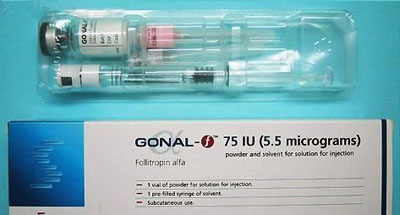
Introduction to
Follicle Stimulating Hormone DeficiencyElevated FSH (Follicle Stimulating Hormone) can be defined as a FSH value of over 10 mg/dl on day three of woman’s menstrual cycle. FSH is one of the two "gonadotropins" secreted from the pituitary gland to regulate the function of the ovary (Luteinizing Hormone, or LH, being the other). FSH stimulates the ovaries’ production of estrogen and promotes development of the follicles. The estradiol produced by the ovaries signals the brain to decrease the production of FSH. When there is not enough estrogen produced by the ovary, the brain doesn’t receive the signal and FSH production remains elevated. FSH levels predict low fertility when they are abnormal but they do not accurately predict high fertility when they are normal. Also, the cut off values are very laboratory dependent and your FSH can vary from cycle to cycle. In general, the following numbers predict:
-- Less than 9: A good level and you should expect an adequate response to ovarian stimulation
-- 9-10: Fair and response is between completely normal and somewhat reduced
-- 10-12: Reduced ovarian reserve with a reduced response to stimulation and possibly some reduction in egg and embryo quality
-- 12-17: Marked reduction in response to stimulation and more reduction in egg and embryo quality
-- Over 17: Very poor response or no response to stimulation
-- Over 30-40: Menopause suspected and menstrual cycles will tend to stop
Ovarian reserve is defined as the health of the ovaries and the eggs they contain. As a woman ages, the amount of eggs in reserve naturally decreases and her FSH levels increase. The amounts of eggs in reserve can only be approximated. The underlying causes of High FSH may include extreme stress, diminished blood flow to the ovaries, or lack of ovarian response to pituitary production of FSH. Typically, symptoms of High FSH may include hot flashes, night sweats, vaginal dryness, infertility, irritability, menstrual irregularity, decreased libido, and headaches. Many women with high FSH are told there is nothing that Western medicine can do to improve their chances of conception and most are advised to try in vitro fertilization (IVF) with assisted hatching, coculture, and donor eggs.